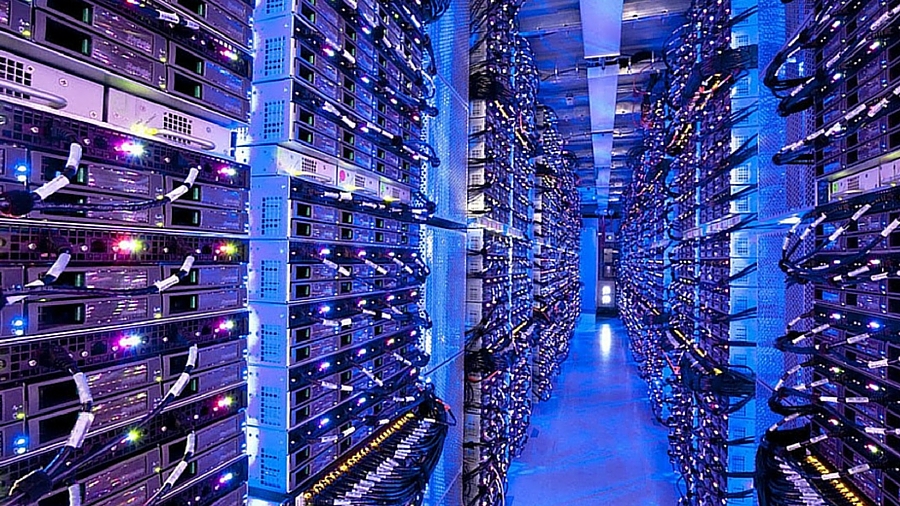Sustainability Week: Scaling AI - how the UK’s hyperscale data centers are evolving for sustainability and growth
Can the UK scale AI without overheating the planet?

As one of the world’s largest AI innovators, the UK’s dominance in the early development of artificial intelligence has so far been underpinned by a strong IT infrastructure, which must now equally evolve as AI rollouts themselves become mainstream. UK organizations continue to integrate AI into their operations at an unprecedented rate, hence the need for a high-performance, scalable, and sustainable data infrastructure has never been more critical.
With the government’s commitment to pro-innovation AI policies and reduced AI regulatory barriers, the UK continues to actively foster a pro AI environment. However, now faced with AI’s ultra rapid acceleration, ensuring energy-efficient hyperscale infrastructures can operate successfully to feed these AI workloads remains a significant sustainability and reliability challenge.
Leading hub
London has emerged as a leading hub for hyperscale data centers, housing nearly half of the country’s large facilities. Major expansion projects, including developments in Hayes, Slough, and a £750 million hyperscale facility in Newham, are set to reinforce the UK's data infrastructure.
Beyond the capital, Latos Data Centres has announced plans for 40 new sites, including a hyperscale facility in Cardiff. In a move to optimize AI processing, the government has also introduced AI Growth Zones (AIGZs), selecting Oxfordshire as the first region due in part to its ability to meet the high energy demands of AI infrastructure.
Given the known energy-intensive nature of these developments, the UK government has likely drawn insights from Ireland’s rapid data center expansion, which faced significant power supply challenges.
Much of this hyperscale expansion is driven by the soaring demand for computational power required by AI workloads. AI models, particularly those used for machine learning, deep learning, and real-time analytics, require vast processing capabilities. The integration of large-scale AI tools, such as natural language processing and predictive analytics, further intensifies energy consumption, placing pressure on hyperscale operators to balance scalability with sustainability.
Addressing challenges
To address these challenges, data center operators are investing in innovative cooling technologies, including immersion cooling, which submerges IT hardware in specially engineered fluids to dissipate heat efficiently.
This approach significantly enhances thermal efficiency and allows for high-density server deployment used in hyperscale facilities. A recent study by Park Place Technologies underscores the increasing importance of both immersion and direct-to-chip cooling as key solutions for reducing energy consumption and operational costs in mass environments.
In addition to cooling advancements, hyperscale data centers are adopting specialized AI chips, high-density computing architectures, and ultra-fast networking solutions. Fiber-optic interconnects are being expanded to optimize data transfer speeds across cloud computing infrastructures, ensuring AI applications can function with minimal latency.
Recognizing that hyperscale data centers alone cannot meet all digital infrastructure demands, the government is promoting a hybrid model that integrates modular ‘pop-up’ data centers and edge computing solutions to work alongside, often locally.
These alternatives enhance computing efficiency by distributing workloads closer to end-users, reducing latency and improving real-time processing for AI, IoT, and 5G applications. Prefabricated modular data centers can be rapidly deployed offering a scalable solution without extended construction timelines.
Edge computing
Edge computing takes this approach further by enabling real-time data processing at the network’s edge, reducing dependency on centralized hyperscale facilities. This is particularly crucial for industries that require ultra-low latency, such as financial services, autonomous vehicles, and smart city infrastructure.
Telecom providers are integrating edge data centers within the 5G network to enhance cloud access and reduce congestion, reinforcing the UK’s digital resilience. Rather than competing with hyperscalers, modular and edge computing facilities act as complementary solutions, ensuring flexibility in data processing and storage.
Meeting sustainability targets remains a priority for hyperscale data centers, which are significant consumers of power. Renewable energy sources, such as wind and solar, are becoming increasingly integrated into data center operations to decrease carbon footprint. Some operators are also pioneering innovations like tidal energy harnessing. These initiatives align with broader efforts to reduce negative impacts and enhance energy efficiency in large-scale computing environments.
With data centers now classified as part of the critical national infrastructure, they must adhere to the highest cybersecurity standards while optimizing energy consumption. Continuous monitoring, entropy detection, and AI-driven workload balancing are essential for mitigating cyber threats and ensuring seamless operations. AI itself is playing a crucial role in managing these systems, using machine learning algorithms to predict energy needs, enhance cooling efficiency, and dynamically adjust workloads in real time.
In summary
As the UK continues to lead in AI innovation, the demand for hyperscale infrastructure will only grow. However, balancing this expansion with long-term sustainability remains the industry’s greatest challenge.
By integrating AI-driven energy optimizations, adopting modular and edge computing solutions, and investing in renewable energy, data center operators can ensure that the UK’s digital ecosystem remains both scalable and environmentally responsible.
With this proactive approach, commitment from operators and continued adequate funding, the UK can maintain its leadership in AI while setting a global benchmark for sustainable data center expansion.
We've rated the best Linux server distro.
This article was produced as part of TechRadarPro's Expert Insights channel where we feature the best and brightest minds in the technology industry today. The views expressed here are those of the author and are not necessarily those of TechRadarPro or Future plc. If you are interested in contributing find out more here: https://www.techradar.com/news/submit-your-story-to-techradar-pro










































































































































































![[The AI Show Episode 144]: ChatGPT’s New Memory, Shopify CEO’s Leaked “AI First” Memo, Google Cloud Next Releases, o3 and o4-mini Coming Soon & Llama 4’s Rocky Launch](https://www.marketingaiinstitute.com/hubfs/ep%20144%20cover.png)

























































































































































![Is This Programming Paradigm New? [closed]](https://miro.medium.com/v2/resize:fit:1200/format:webp/1*nKR2930riHA4VC7dLwIuxA.gif)

























































































-Classic-Nintendo-GameCube-games-are-coming-to-Nintendo-Switch-2!-00-00-13.png?width=1920&height=1920&fit=bounds&quality=70&format=jpg&auto=webp#)















































































































































![New iPhone 17 Dummy Models Surface in Black and White [Images]](https://www.iclarified.com/images/news/97106/97106/97106-640.jpg)


![Hands-On With 'iPhone 17 Air' Dummy Reveals 'Scary Thin' Design [Video]](https://www.iclarified.com/images/news/97100/97100/97100-640.jpg)




































































































































